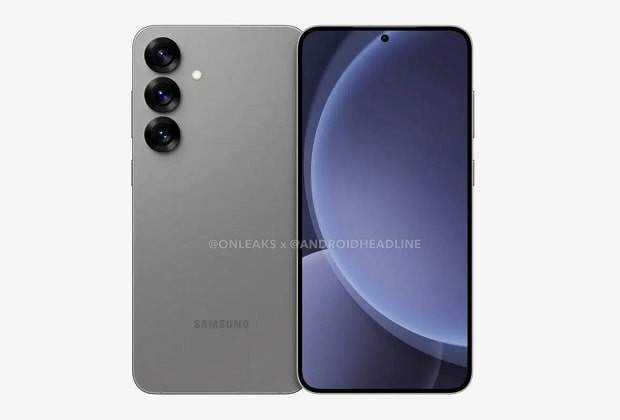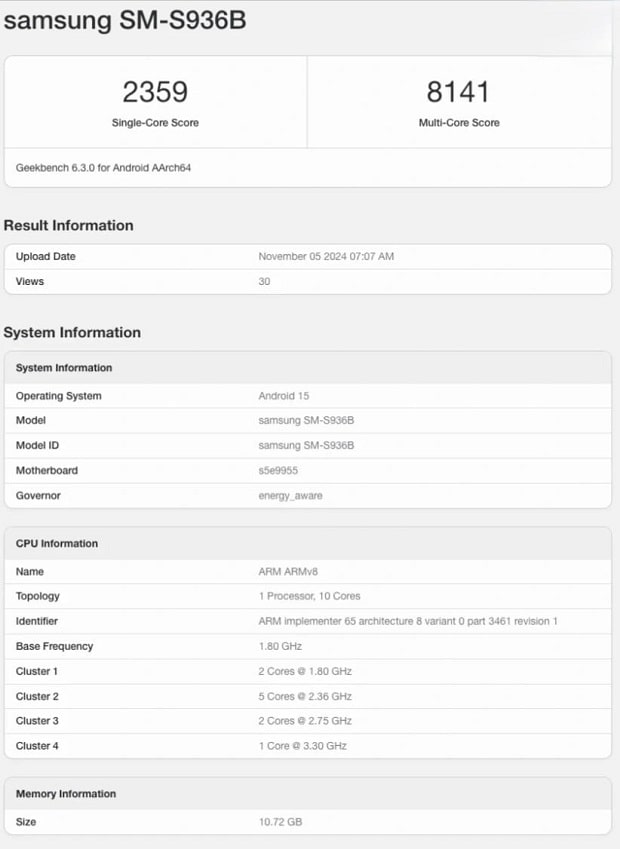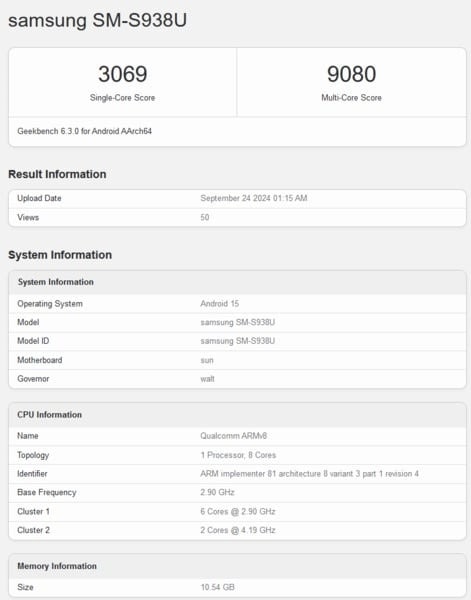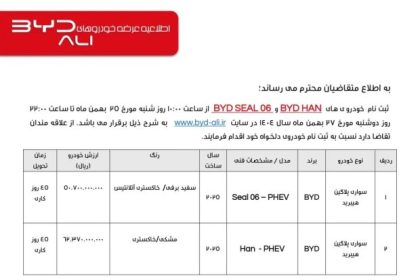November 16, 1403 at 08:01
Samsung’s upcoming flagship, the Galaxy S25 Plus, recently equipped with the Exynos 2500 chip, appeared in the Geekbench benchmark and scored interesting points.
It seems that Samsung is making final preparations for the unveiling of the Galaxy S25 series of flagships, which are scheduled to be officially unveiled in January next year. In a situation where we are almost certain that the Galaxy S25 Ultra will be equipped with Qualcomm’s Snapdragon 8 Elite chip, it can be predicted that the standard and Plus models will be equipped with another chipset. At the same time, recently the Galaxy S25 Plus flagship phone equipped with Exynos chipset appeared in the Geekbench benchmark and revealed interesting information about this chip.

Exynos 2500 chipset; The beating heart of the Samsung Galaxy S25 Plus
The latest information published by Geekbench shows that the upcoming Samsung Galaxy S25 will be equipped with the Exynos 2500 chipset. This phone, codenamed SM-S936B, is under construction for European markets and has scored 2359 and 8141 single-core and multi-core scores on Geekbench 6 benchmarks. The product that achieved this score had 12 GB of RAM and was equipped with Android 15.


The Exynos 2500 chip uses a ten-core architecture and has a maximum clock speed of 3.3 GHz. This chip uses Samsung’s Xclipse 950 graphics processing unit, which is based on AMD’s RDNA design and promises optimal graphics performance.
In general, the technical performance of the Exynos 2500 chip is close to the Snapdragon 8 Elite chipset; However, there is a big difference between the single-core scores of these chips. For example, previously the Galaxy S25 Ultra equipped with a Snapdragon chipset scored single-core and multi-core scores of 3096 and 9080. On the other hand, we can expect the Exynos 2500 chip to be placed behind the Snapdragon 8 Elite or Dimension 9400 chips in heavy processing such as playing detailed games or recording video with a very high resolution and frame rate.


Regarding the Geekbench benchmark results and other similar tests, it should be kept in mind that all these tests are generally completed within a few minutes and are unable to measure the device’s performance during long-term use, especially during heating. On the other hand, many phone manufacturers use different control and optimization systems with different tactics to get higher scores in these benchmarks. Therefore, in many cases, the Geekbench benchmark scores cannot be a measure of the device’s real performance.
However, we have to wait and see what will be the fate of the Galaxy S25 and S25 Plus and whether Samsung will use the Exynos chip in them or other brands.
RCO NEWS

















